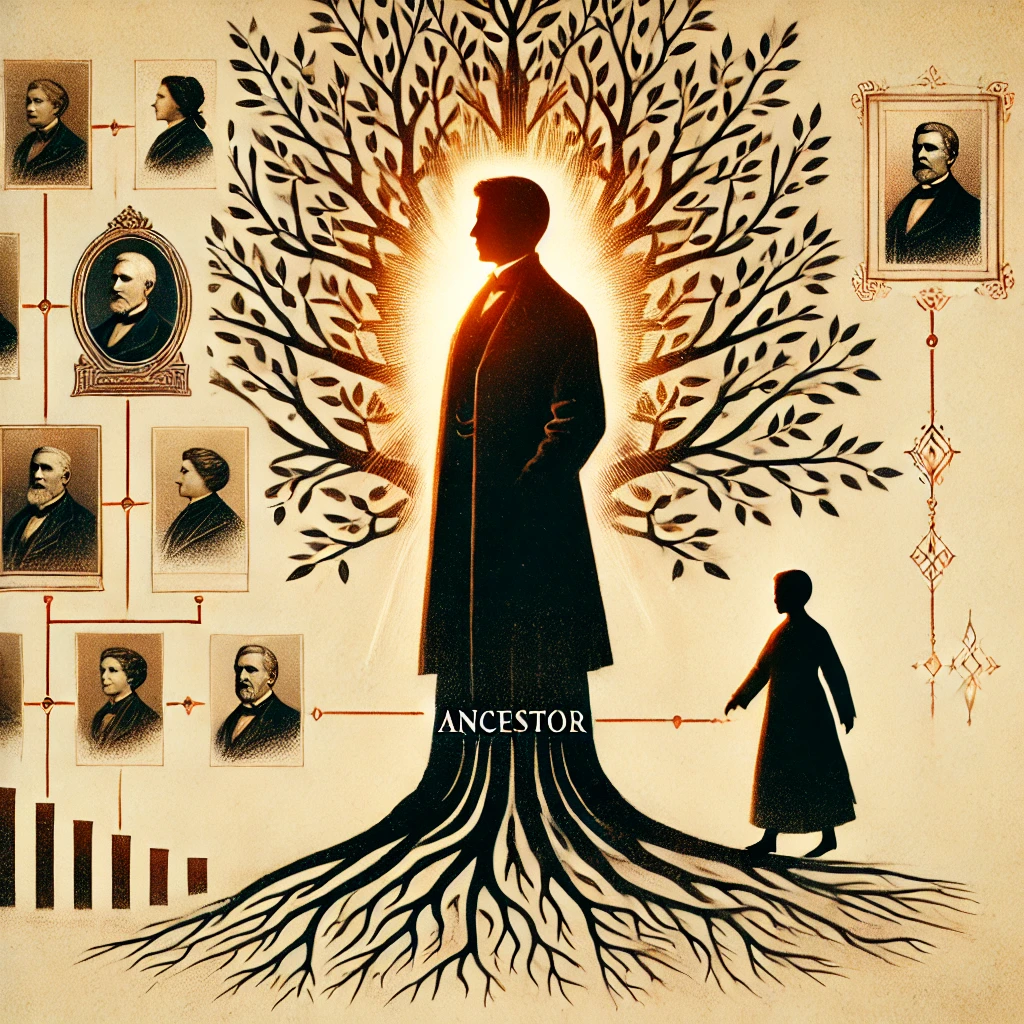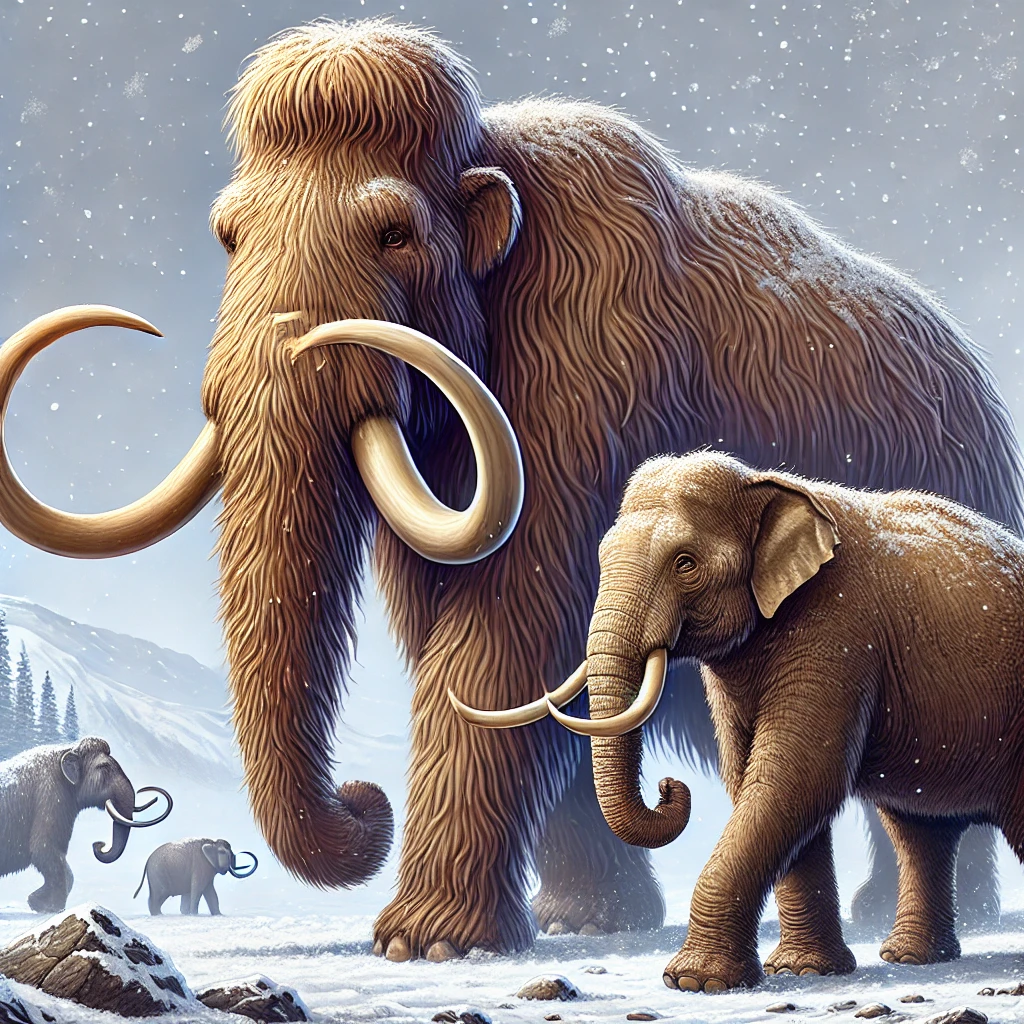Ancestor
Definition
Ancestor refers to a person from whom one is descended, typically one who lived several generations ago. It can also refer more generally to a forerunner or predecessor, often in a lineage or evolutionary context.
Parts of Speech
- Noun
Pronunciation
American English
- IPA Pronunciation: /ˈænˌsɛstər/
- Respelling: AN-sess-ter
British English
- IPA Pronunciation: /ˈænˌsɛstə/
- Respelling: AN-sess-tuh
The pronunciation of "ancestor" is slightly different in American and British English, particularly in the final syllable.
Etymology
The word "ancestor" originates from the Latin "antecessor," meaning "one who goes before," from "ante-" (before) and "cedere" (to go). It entered Old French as "ancestre" and then Middle English, maintaining its sense of someone from whom one is descended.
Derivatives
- Ancestry (noun)
- Ancestral (adjective)
- Ancestor worship (noun)
- Ancestorial (adjective, rare)
- Ancestrally (adverb)
Synonyms
- Forebear
- Predecessor
- Progenitor
Antonyms
- Descendant
- Successor
- Heir
Usage
The term "ancestor" is used to refer to those from whom an individual or group is descended, often spanning several generations. It is commonly used in genealogy, history, and evolutionary studies to indicate predecessors in a lineage. The concept of "ancestor worship" is observed in various cultures, where reverence is given to deceased family members as a way to honor heritage and lineage. In biological contexts, ancestors are important for understanding evolutionary processes and genetic inheritance.
Related Terms
- Descendant: An individual who is derived from a particular ancestor.
- Lineage: Direct descent from an ancestor; ancestry or pedigree.
- Genealogy: The study and tracing of family lineages.
Detailed Definitions
Noun
- A person from whom one is descended: Refers to a relative, typically in the distant past, from whom a family lineage originates.
- Example: "Her great-grandfather was a prominent ancestor of the family."
- A predecessor or forerunner: In a general sense, can refer to an earlier form or version that predates others in its category, often in historical or biological contexts.
- Example: "The early hominids are considered ancestors of modern humans."
ancestor



Mandarin (🇨🇳)
- 祖先 (zǔxiān) /
- IPA: /t͡su˨˩˦ɕjɛn˥/ /
- Respelling: dzoo-syen
Hindi (🇮🇳)
- पूर्वज (pūrvaj) /
- IPA: /puːrvəd͡ʒ/ /
- Respelling: poor-vuhj
Spanish (🇪🇸)
- Antepasado /
- IPA: /anteˈpasado/ /
- Respelling: ahn-teh-pah-SAH-doh
French (🇫🇷)
- Ancêtre /
- IPA: /ãsɛtʁ/ /
- Respelling: ahn-SEHT-ruh
Modern Standard Arabic (🇸🇦)
- جد (jad) /
- IPA: /d͡ʒad/ /
- Respelling: jad
Bengali (🇧🇩)
- পূর্বপুরুষ (pūrbapurush) /
- IPA: /puːrbəpuruʃ/ /
- Respelling: poor-buh-poo-roosh
Russian (🇷🇺)
- предок (predok) /
- IPA: /ˈprʲedək/ /
- Respelling: pree-dok
Portuguese (🇵🇹🇧🇷)
- Antepassado /
- IPA: /ɐ̃tɨpɐˈsadu/ (European) / /ˌɐ̃tɨpɐˈsadu/ (Brazilian) /
- Respelling: ahn-teh-pah-SAH-doo (European) / ahn-teh-pah-SAH-doo (Brazilian)
Indonesian (🇮🇩)
- Leluhur /
- IPA: /ləluhur/ /
- Respelling: luh-LOO-hoor
German (🇩🇪)
- Vorfahr /
- IPA: /ˈfoːɐ̯faːɐ̯/ /
- Respelling: FOHR-fahr
Japanese (🇯🇵)
- 祖先 (sosen) /
- IPA: /so̞sʲɛ̞̃ɴ/ /
- Respelling: soh-sen
Vietnamese (🇻🇳)
- Tổ tiên /
- IPA: /təː˧˥ tien˧˥/ /
- Respelling: tuh tee-en
Korean (🇰🇷)
- 조상 (josang) /
- IPA: /t͡ʃoːsʰaŋ/ /
- Respelling: jo-sahng
Turkish (🇹🇷)
- Ata /
- IPA: /ˈatɑ/ /
- Respelling: AH-tah
Urdu (🇵🇰)
- آبا اجداد (ābā ajdād) /
- IPA: /ɑːbɑː əd͡ʒdɑːd/ /
- Respelling: ah-bah uhj-dahd





